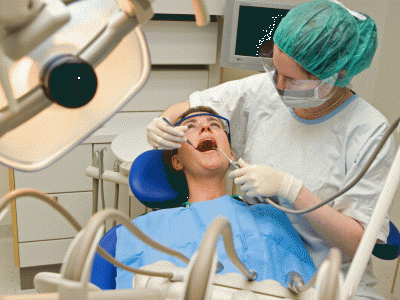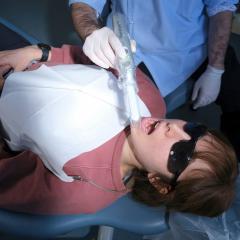 Federal and State Government funding alone won’t reduce public dental service waiting lists in Queensland, unless preventative measures are introduced, a University of Queensland researcher warns.
Federal and State Government funding alone won’t reduce public dental service waiting lists in Queensland, unless preventative measures are introduced, a University of Queensland researcher warns.
Associate Professor Ratilal Lalloo from UQ’s School of Dentistry said to adequately address oral health issues a preventative approach needs to be incorporated alongside long-term funding for public dental services.
“In 2013 Federal and State Government funding initiatives reduced the public dental waiting list, from approximately 130,000 in December 2012 to approximately 77,000 in December 2013, however this reduction was not sustained,” Associate Professor Lalloo said.
“By December 2015 the numbers waiting were almost back to the December 2012 count, at about 115,000 and by June 2017 the list was almost 134,000.
“On average between January 2016 and June 2017 one thousand additional people are added to the wait list every month.”
“A positive result over the last few years was the reduction in the percentage of people waiting beyond a reasonable time, which dropped from 57 per cent in December 2012 to 22 per cent in June 2017.”
The UQ study was the first to analyse Federal and State Government funding initiatives and their impact on numbers of people waiting for public dental services.
The research used data openly available and updated monthly for each clinic across all Health and Hospital Services in Queensland.
“There needs to be health-promotive ‘upstream’ approaches to reduce oral health conditions, people on waiting lists and the cost of treatment.”
“This includes addressing the social determinants of oral conditions, by implementing policies to reduce sugar, tobacco and alcohol consumption and make toothbrushes and fluoridated toothpaste more accessible and affordable.”
“We need to encourage councils to implement or maintain the proven cost-effective strategy of fluoridating their water supplies.”
“It is also equally as important that dental researchers work collaboratively with the public dental service.”
“A good example of this is the Oral Health Alliance, a partnership between UQ and Metro North Hospital and Health Services which has been successful in treating oral health issues and making a dent in waiting lists.”
It is estimated approximately one third of the Queensland population are eligible for dental public services and about 8-10 per cent of this population is currently on the waiting list for public dental care.
“In Australia, while many people enjoy good oral health, in some sectors those experiencing poor oral health are the most vulnerable people who are dependent on public dental service.
“If their needs are not timely met, they will suffer unnecessary consequences of their oral conditions and possibly worsen their conditions.”
The research was based on a study published in the Australian and New Zealand Journal of Public Health.
Media: Professor Ratilal Lalloo, r.lalloo@uq.edu.au, 07 3365 8047 Kirsten O’Leary, UQ Communications, kirsten.oleary@uq.edu.au, +61 73365 7436


